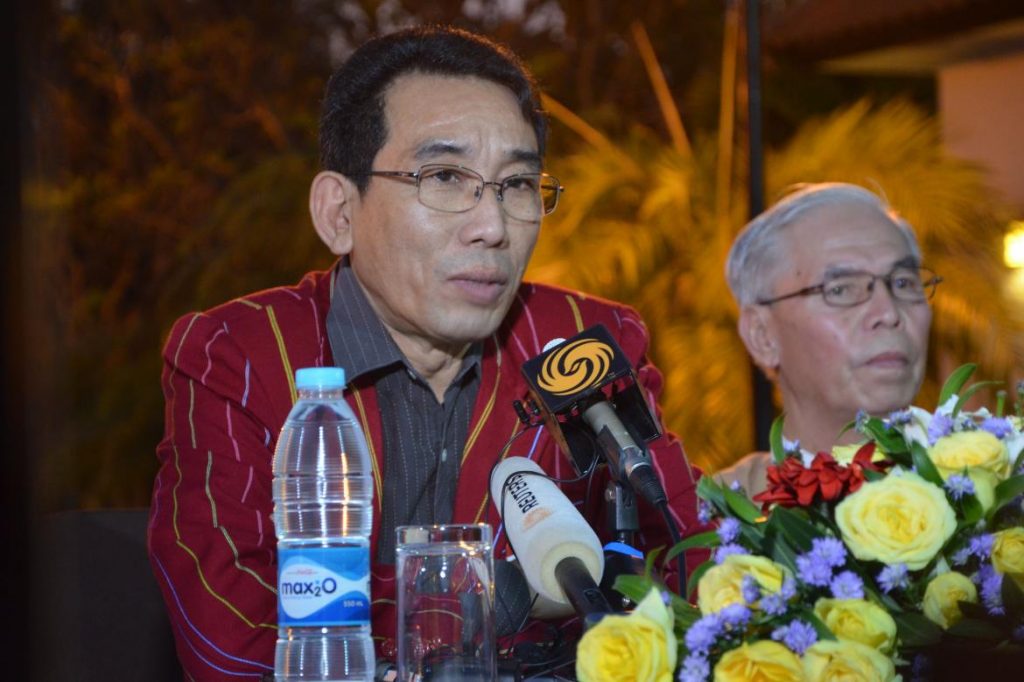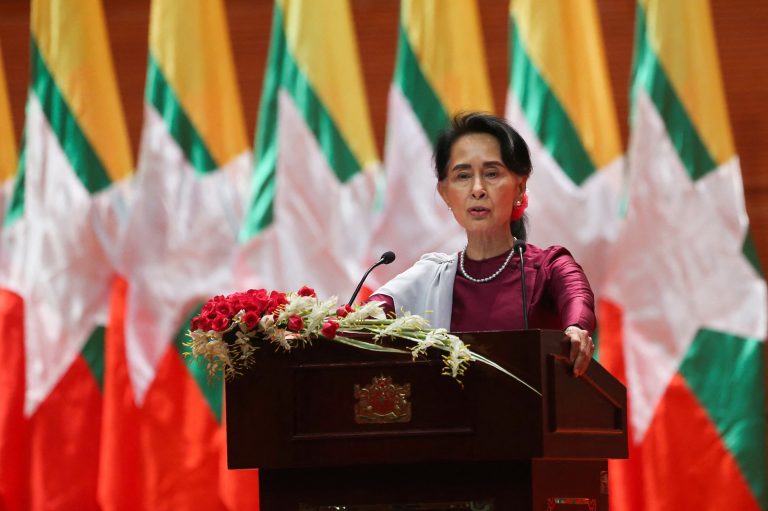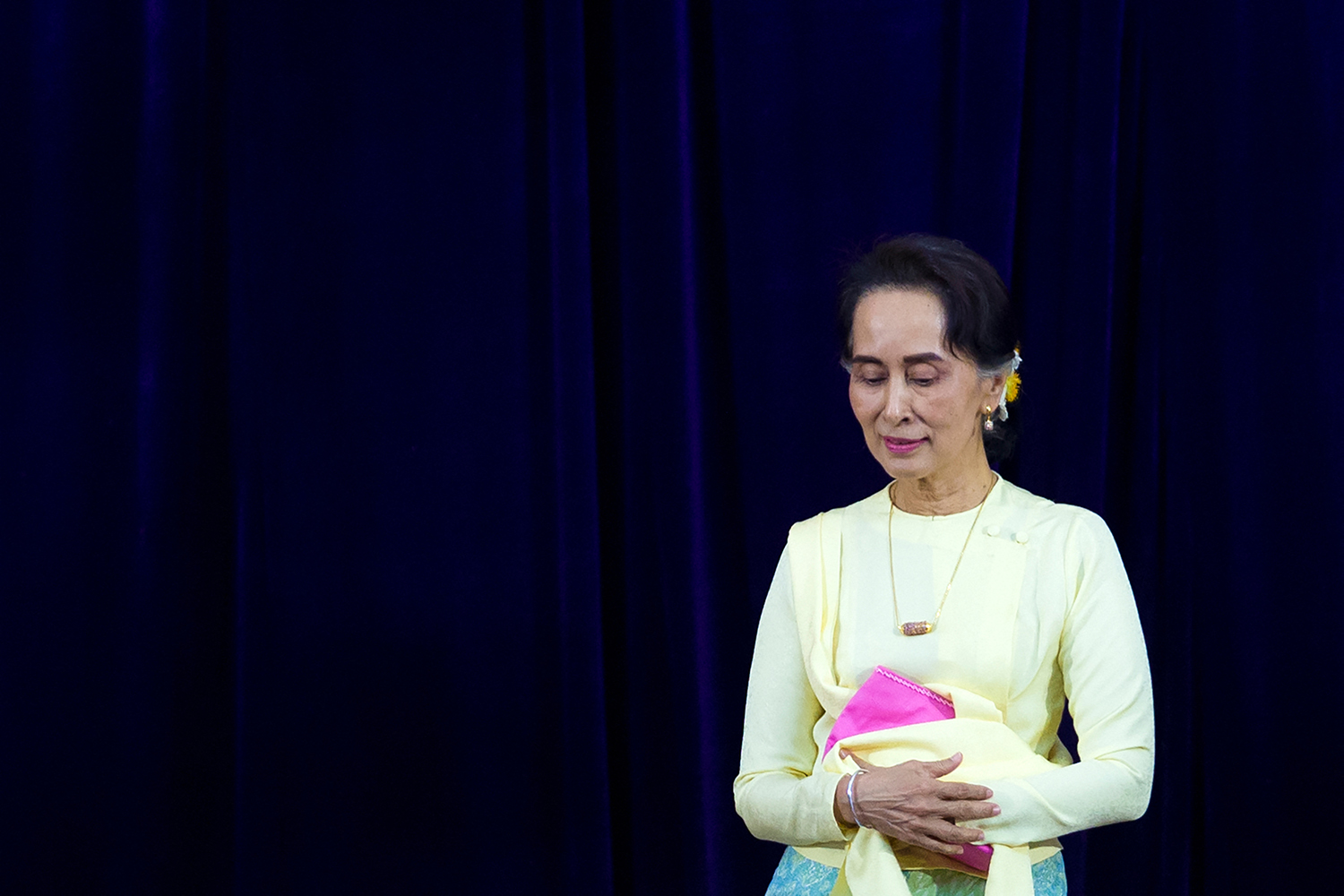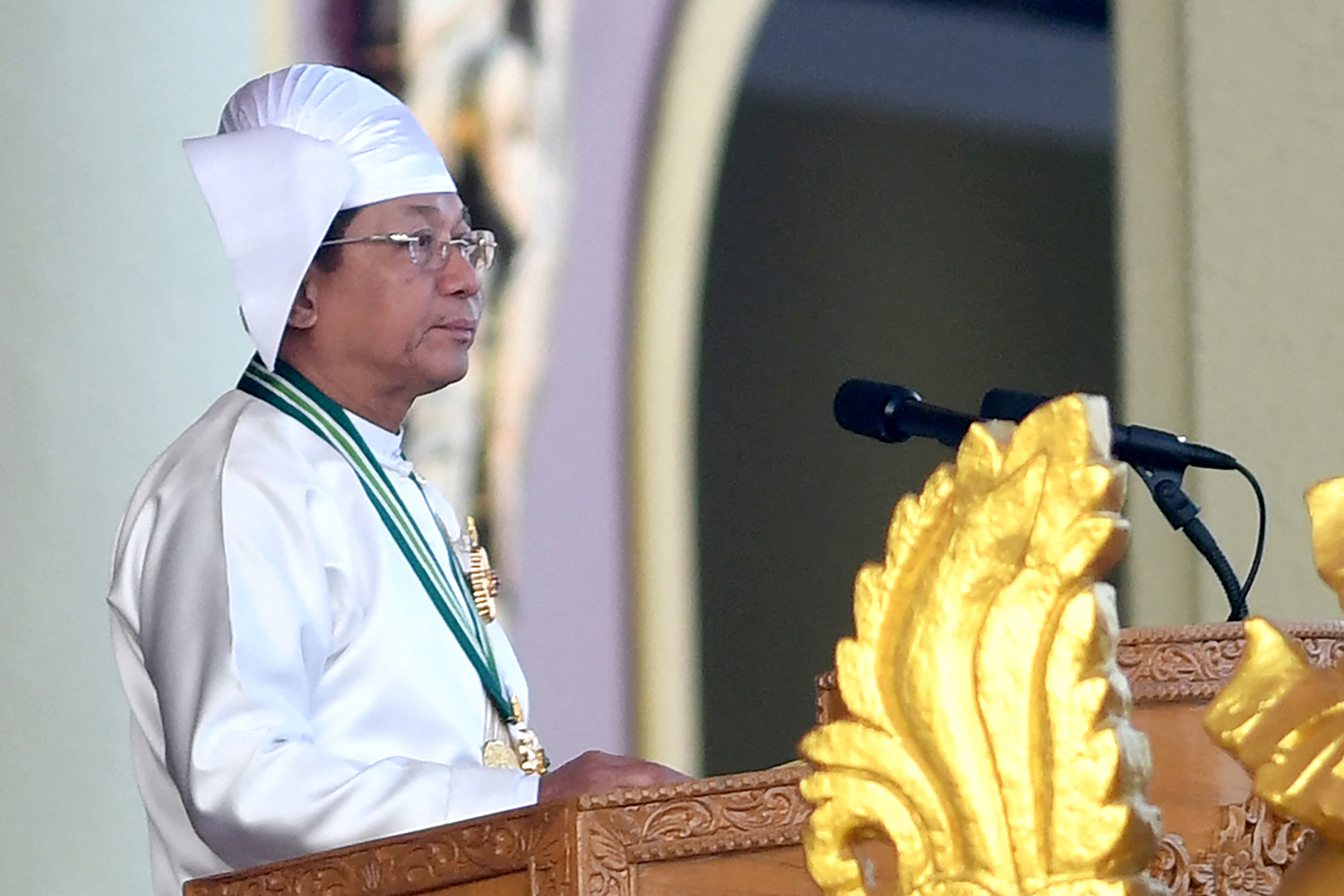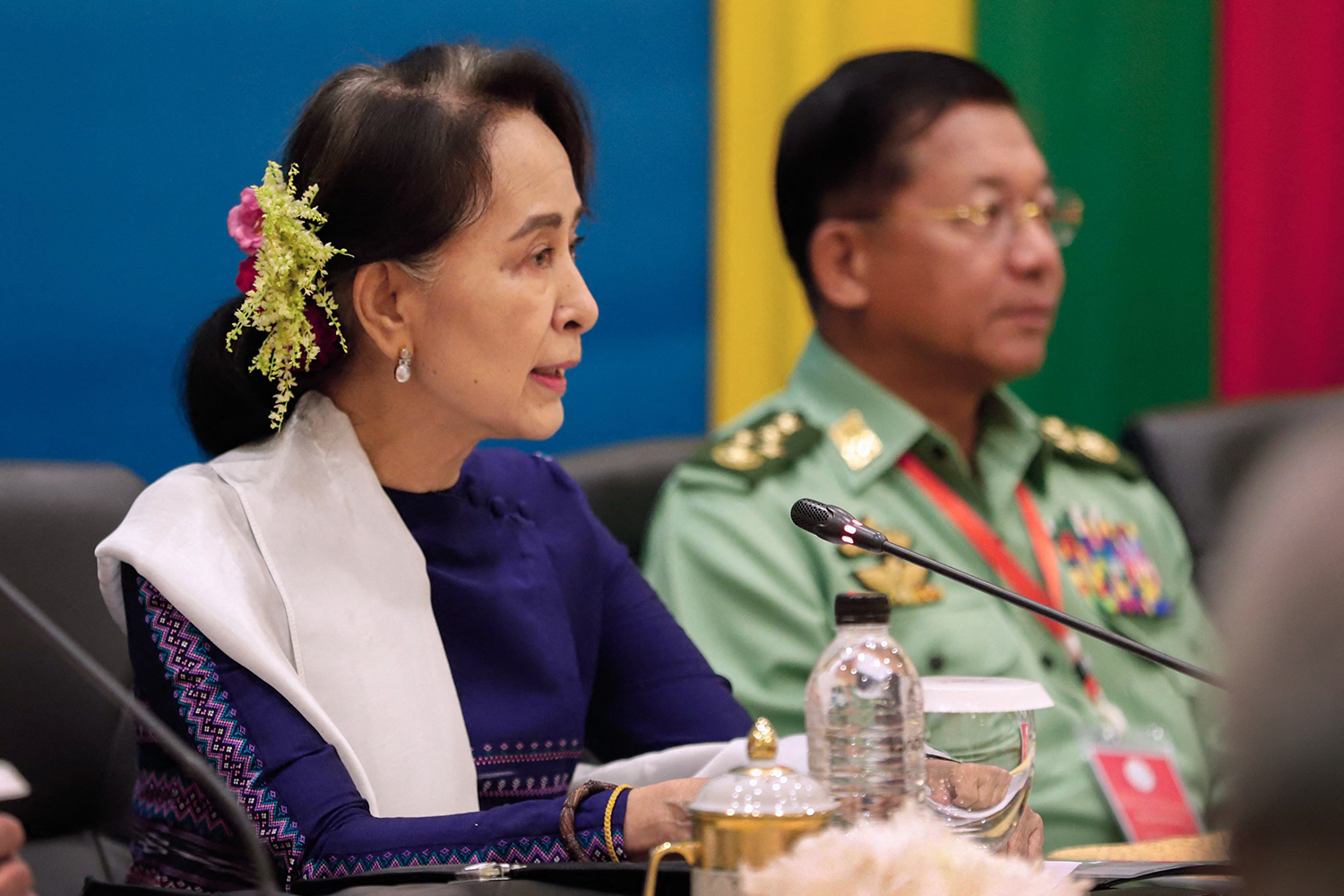NAY PYI TAW — The United Nationalities Federal Council has backed away from a recent statement by some members in which they dismissed the nationwide ceasefire agreement, following talks with State Counsellor Daw Aung San Suu Kyi in Nay Pyi Taw.
Secretary U Khu Oo Reh said the bloc – which comprises nine armed groups yet to agree to the ceasefire – would continue negotiations towards signing the NCA and participating in the 21st Century Panglong peace meetings.
“Our position is to continue with the NCA,” he told reporters in Nay Pyi Taw on March 1. “We haven’t changed our decision. … It’s the position of all UNFC members and all members must obey it.”
He made the comments after meeting Aung San Suu Kyi at the National Reconciliation and Peace Centre.
But they appeared to contradict a statement released on February 24, at the end of a three-day conference at the United Wa State Army headquarters at Panghsang, in which some UNFC members called for the NCA to be replaced by a “just and fair” ceasefire agreement.
Support more independent journalism like this. Sign up to be a Frontier member.
Khu Oo Reh, who leads the UNFC negotiating team known as the Delegation for Political Negotiation, did not explain the discrepancy.
The government is urging non-signatories to sign the ceasefire so they can attend the next Panglong meeting, which is scheduled for late March.
During the meeting with Aung San Suu Kyi, the DPN presented nine conditions that it says need to be fulfilled for its members to sign the nationwide ceasefire, Khu Oo Reh said.
The UNFC demands include the government and Tatmadaw issuing a statement that the nationwide ceasefire has taken effect within 24 hours of it being signed.
The UNFC wants the peace dialogue process to have just three parties: the government, hluttaw and Tatmadaw; political parties; and ethnic armed groups.
Political dialogue should result in a federal union that fully guarantees the rights to democracy, equality and self-determination, according to the UNFC.
The UNFC is also demanding that the constitution be amended based on the results of the 21st Century Panglong meetings.
The bloc also wants international delegates to be included in the joint ceasefire monitoring committee; to force ceasefire parties to obey the decision of an independent mediating commission if conflict arises; and to require an agreement with respective ethnic armed group for large development projects.
Khu Oo Reh said the ongoing conflict in northern Myanmar and the exclusion of the Arakan Army and Ta’ang National Liberation Army from the peace process were barriers to signing the NCA, but he believed the groups were getting closer to agreeing to the ceasefire.
“We don’t want to leave behind a few members of the UNFC. They are also important. They have the right to participate in the peace process,” Khu Oo Reh said.
“We want to go on negotiating and finding solutions on these points,” he added. “We are negotiating to strengthen the NCA.”
At a press conference the previous day, General Mya Tun Oo, joint chief of staff of the army, navy and air force, said armed groups should sign the NCA to end conflict.
“They demand that the Tatmadaw side first needs to cease fire. Well, the NCA is a ceasefire agreement. If they sign the NCA, it will meet this requirement,” he said.


